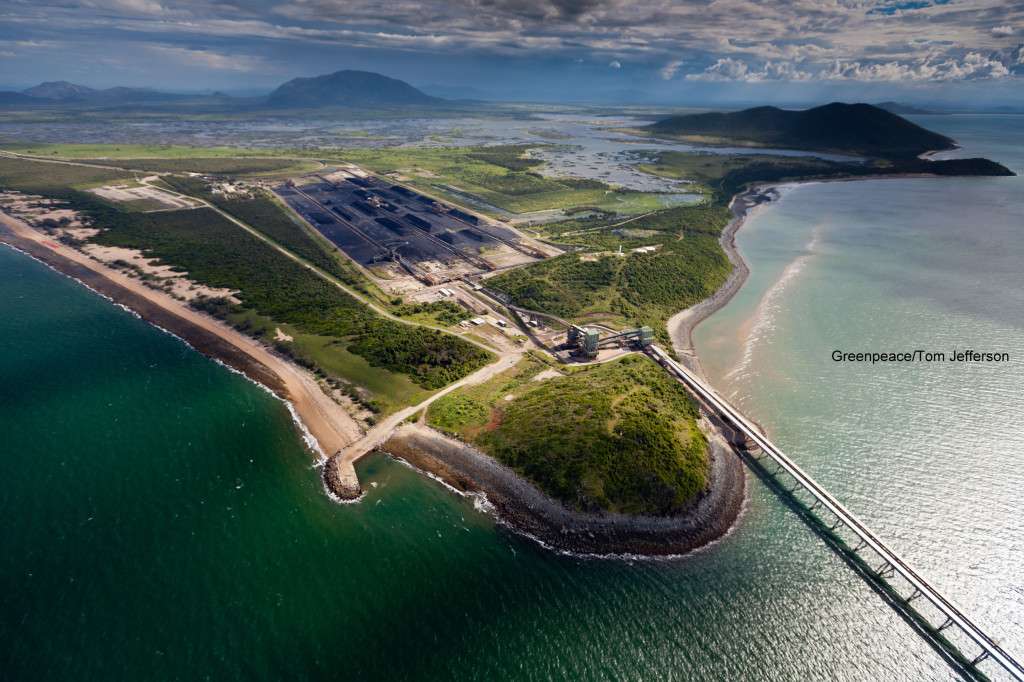By Muriel Moody Korol, Senior Attorney, Climate & Energy Program
Right before Christmas, Moody’s announced that it is considering downgrading the credit rating of Adani Abbot Point Terminal Pty Ltd. (Abbot Point). Abbot Point is the case profiled in CIEL’s Report (Mis)Calculated Risk.
CIEL’s report illustrates how rating agencies are failing to incorporate a dynamic change trajectory into their methodologies. This failure may lead rating agencies to insufficiently account for climate-related risk and rate debt, especially debt related to fossil fuel infrastructure, higher than warranted.
With the Abbot Point case, Moody’s may have indeed rated the coal export terminal higher than warranted. As discussed in an earlier blog, Moody’s assumptions are proving inaccurate under a dynamic climate change trajectory. By using a business-as -usual trajectory for climate change, Moody’s did not forecast the oversupply and abysmal performance of the seaborne coal market. Moody’s also thought that Abbot Point’s contracts would be enough to insulate Abbot Point’s ability to repay its debt. These faulty assumptions are easy to make when credit rating agencies assume that business-as-usual will continue.

But the fact of the matter is that business-as-usual is not continuing. It is imperative that business-as-usual with respect to climate change cannot continue. That is why 195 countries recently agreed in Paris (the Paris Agreement) to “holding the increase in the global average temperature to well below 2°C above pre-industrial levels and to pursue efforts to limit the temperature increase to 1.5°C[.]” The Paris Agreement, even with its uncertainties and shortcomings, is forcing the trajectory of anthropogenic climate change to become even more dynamic.
This dynamism, post Paris, especially impacts coal. As the Financial Times recently reported, “The Paris agreement adds but another heavy nail into King Coal’s already well-hammered coffin.” Indeed in December, the “IEA’s Medium-Term Coal Market Report 2015 slashed its five-year estimate of global coal demand growth by more than 500 million tonnes of coal equivalent (Mtce) in recognition of the tremendous pressures facing coal markets.” Demand for coal in particular, as the most carbon-intensive fossil fuel, continues to suffer under a dynamic climate change trajectory.
In recognizing that Moody’s may have to downgrade its Abbot Point credit rating, the agency noted that there are “challenging coal market conditions” and “ongoing severe pressure facing the coal sector[.]” These “challenging coal market conditions” mentioned in Moody’s announcement were foreseen in CIEL’s report. CIEL argued that using a business-as-usual climate change trajectory did not accurately forecast demand constraints on fossil fuels. The report also argued that this inaccuracy could lead to inflated ratings – higher debt ratings than warranted. Moody’s announcement of a potential downgrade of Abbot Point is evidence of that rating inflation.
Rating agencies’ failure to incorporate a dynamic climate change trajectory into their methodologies leads to inaccurate forecasts of risk. To accurately forecast risk, rating agencies cannot ignore how a dynamic climate change trajectory modifies the economy as a whole and thus impacts specific debt issuers.
Originally published on January 8, 2016
